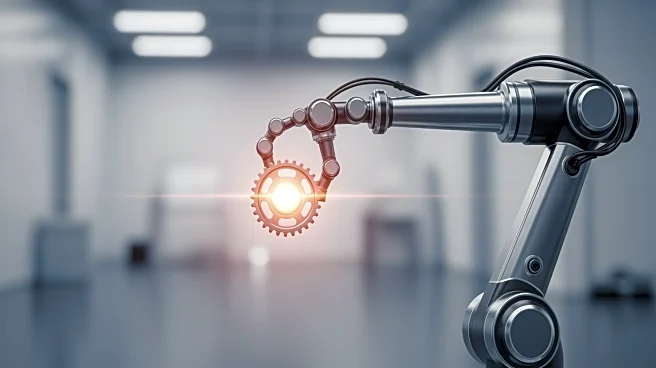What's Happening?
In the evolving tech landscape, data has become a strategic asset, particularly in the industrial sector. A study by Deloitte indicates that 91% of companies plan to address data challenges in the coming year, highlighting the importance of data readiness.
Machine builders are integrating artificial intelligence (AI) and machine learning (ML) into their operations, but face challenges such as data silos and quality issues. These silos prevent efficient decision-making and collaboration, as data is often isolated within specific departments. Overcoming these barriers is essential for fostering an integrated environment where data can be effectively shared and utilized across an organization. Practical steps to address these issues include connecting existing data, consolidating legacy systems, and creating a unified data model to ensure AI systems are trained on accurate and up-to-date information.
Why It's Important?
The integration of AI and ML in the industrial sector is crucial for modernizing operations and enhancing productivity. However, the success of these technologies heavily relies on the quality and accessibility of data. Addressing data challenges can lead to more informed decision-making, optimized operations, and improved performance. Companies that effectively manage their data can gain a competitive advantage by enabling new, service-oriented business models and reducing downtime. The emphasis on data governance and modernization of digital threads ensures seamless data flow and integration, allowing organizations to adapt to emerging AI capabilities and market demands.
What's Next?
Organizations are expected to continue investing in data infrastructure improvements to support AI and ML integration. This includes fostering collaboration between IT, engineering, and operations to streamline data management processes. As companies prioritize data accessibility and relevance, they can empower smart machines to make more informed decisions and enhance overall performance. The focus on modular, flexible systems will enable organizations to continuously innovate and respond to changing market demands, ultimately driving the future of smart machines and digital transformation in the industrial sector.
















